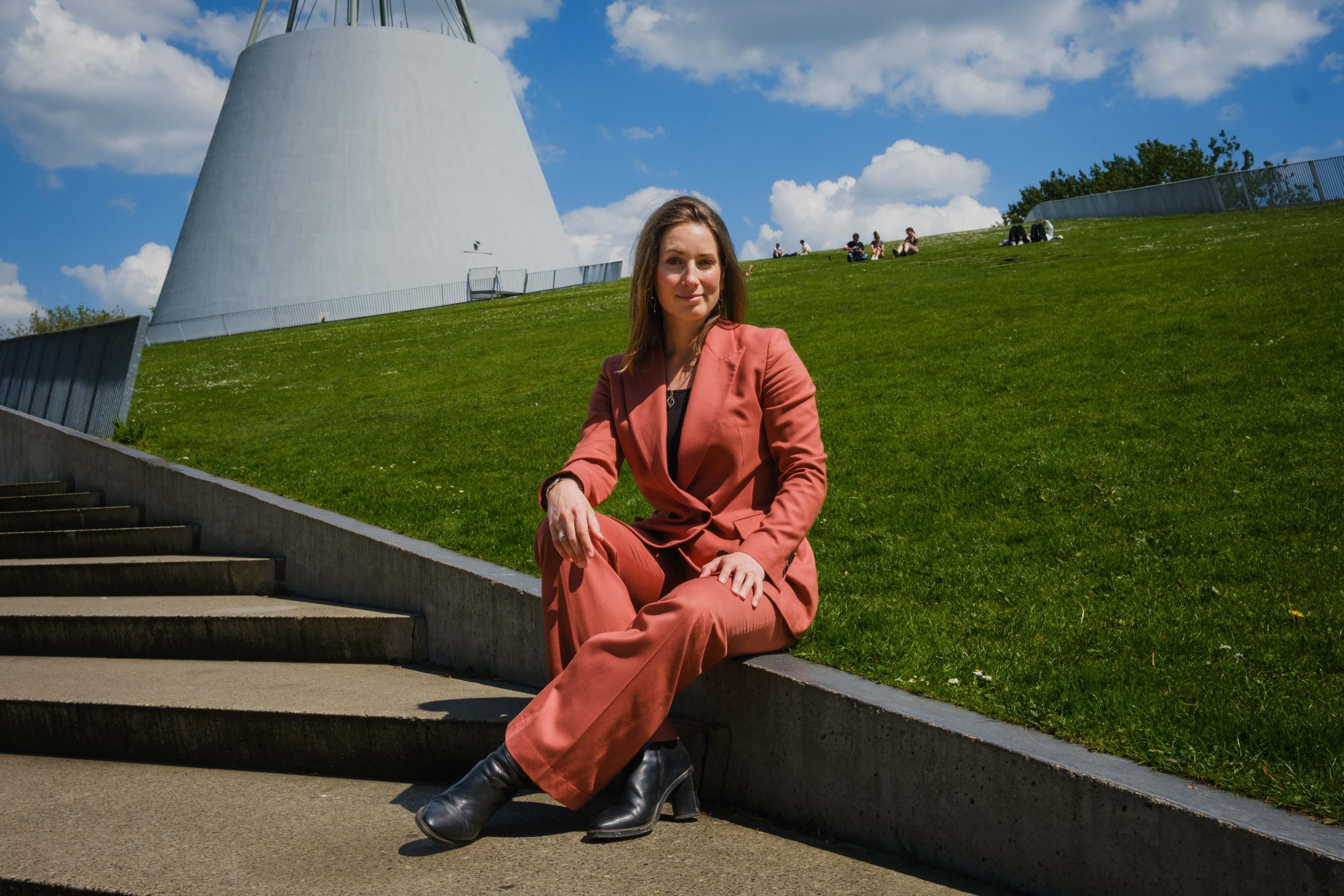You graduated from TU Delft in 2018. Now you are a candidate for the European Parliament. Why this choice?
“I see in business and politics that there is a great divide between techies and executives who often don’t have a technical background. You want a mix because while executives often don’t understand technology, they do understand managing organisations. Technology determines what our future living environment will be like. But the engineers who research and develop cool stuff rarely join the debate, while the people who proclaim the visions often have no knowledge of technology.”
You describe C.P. Snow’s classic gap between two cultures. He observed that natural sciences and humanities no longer understand each other.
“That may come from my education in engineering administration. There, it was always said that ‘You are the bridge between the techies and the ordinary people’. I very much want to take on that role in politics.”
‘TU Delft students, vote for a party that values digitalisation, technology and innovation’
You want more engineers in politics?
“Yes, just look at AI. This technology can help everyone and improve many things. Only, it can also do very nasty things. So it is important that the people at the controls also understand the underlying algorithms. That they know what design choices preceded it. So we need techies to have a say in how we encourage and regulate these kinds of technologies.”
Suppose TU Delft students, the future engineers, would be interested in regulations. Do their studies adequately prepare them for it?
“I don’t think it matters that much. I was not prepared for politics at Technology, Policy & Management. But it is not that difficult to learn the difference between a motion or an amendment. That’s all secondary. The core is the content and how you make policy proposals and policies. The knowledge you bring to these, such as about AI, renewable energy or the electricity grid, is much more important than the procedural matters in Parliament.”
Apart from procedural matters, I also think about communication, engaging in debate, understanding the importance of multiple points of view. Do TU Delft students learn these?
“Are you implying that TU Delft students are very stubborn?”
I’m saying that engineers tend to strive for optimal solutions.
“That’s most welcome in politics, isn’t it? Some problems you just have to solve. An example: there are a lot of electric cars now because about six years ago everyone wanted an electric car because it was sustainable. In my lectures, I learned that if there are a lot of electric cars, the power grid has to be heavier. So if you want more electric cars, you need a stronger power grid. It helps to have engineers in politics who point out the consequences for the things that are wanted. That’s not a political problem, it’s just how physics works.”
How can you develop your political skills as a student?
“TU Delft offers a lot. At student associations, you learn to network. You learn to find your way in, and you learn to make small talk with people when you are tired and don’t feel like it. These are very important skills in the political world. Everywhere at TU Delft you learn to organise things. That’s a real advantage of studying here.”
‘The future of tech is in Europe’s hands’
Besides you, four more TU Delft engineers are on the ballot sheet (see box), but often so low down the list that they won’t be elected. Are political parties interested in engineers at all?
“People tend to hire people who are similar to them. So if the entire political top is not educated in science and technology, the chances that the next batch will be are very small. It is not a question of interest as if you ask anyone directly, they all think technology is super important. It’s a lack of diversity. And that’s something you have to break through. That’s why I love the fact that I ended up in fourth place on the list of candidates. I was first in eighth place. Our members voted me up because they read about me: studied technology, digitalisation, cyber security, and national security. They thought these were important.”
Finally, can you give our students one good reason why they should definitely head to the voting booth on 6 June?
“Whew. Okay, there are a thousand good reasons. Democracy is the most important one. It is the basis of everything we do. So go and vote. But also, TU Delft students, vote for a party that values digitalisation, technology and innovation. Because all the cool jobs and fancy start-ups where you will work or that you yourself will set up – the investments in them, the investment climate and the opportunities in Europe are all determined in Brussels. The future of tech is in Europe’s hands.”



Comments are closed.